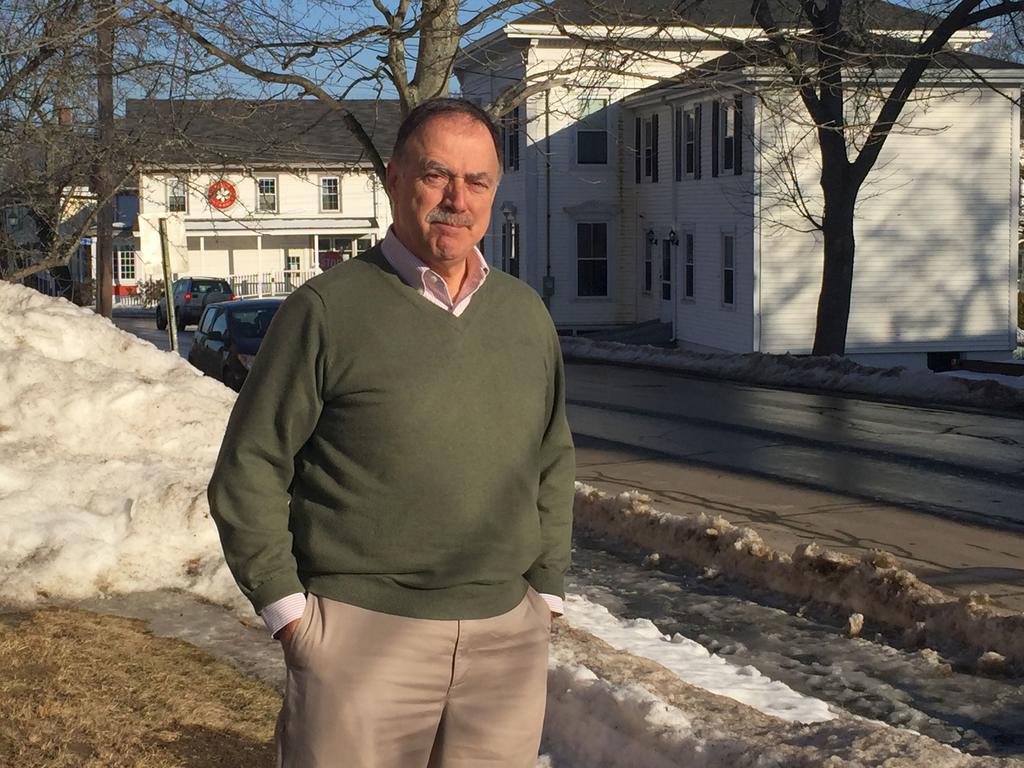BATH — A series of “Community Conversations” hope to raise awareness about and discuss solutions to homelessness in the Bath area.
The first was held Jan. 31, with two more scheduled for Wednesday, Feb. 21, and Wednesday, March 21, at the Neighborhood United Church of Christ, 798 Washington St., from 7-8:30 p.m.
Log onto faithinbath.org or facebook.com/neighborhood.ucc, or contact Rev. Bill Bliss at pastor@faithinbath.org, for more information.
Homelessness around Greater Bath tends not to be apparent outdoors – people living on the street. It tends to be characterized by what is known as “couch surfing,” Sagadahoc County Sheriff Joel Merry said in an interview Monday.
“We know that we have a number of folks, both teenagers and adults … that just go from one friend or relative’s home to another,” he explained, noting it is difficult to quantify how many people are forced into the situation.
“It’s below the radar,” said Merry, a panelist at the Jan. 31 forum. “We hear about it anecdotally, so therefore we know it exists.”
He said he sometimes hears of people sleeping outdoors, and in their vehicles, too.
“My particular concern is, we have a hard time occasionally with folks that are transitioning back into the community out of the correctional system,” Merry said. “And finding affordable housing for them is sometimes a challenge, due to what it was that landed them in jail.”
Sometimes people require services like mental health counseling and substance abuse treatment as they return to society, “and they find housing opportunities scarcely limited,” the sheriff added.
Merry noted that when a person does not have his or her most basic requirements met – such as shelter and food – “that will cause people to do things that they wouldn’t normally do. They become desperate; they see the world through a different lens than we do.”
Which can result in criminal behavior, and a return to the correctional system.
“All of this has a snowball effect, and it’s concerning,” Merry said.
Facilitating stable housing to promote positive outcomes – education, employment, physical and mental health, financial stability – is much of what Deb Keller’s job is all about.
Keller, the executive director of Bath Housing, who was also a panelist at last month’s forum, said in a Feb. 9 interview that her main focus is getting people into “long-term permanent housing situations that will impact their stability.”
She noted that Bath Housing is not a crisis agency, nor a homeless services provider.
Incomes and housing prices are incompatible, with rents rising quickly and wages not keeping pace, Keller explained, pointing out, “we’ve seen about a 28 percent increase in 21 months in terms of rents that we’re seeing in this area.”
Many people come to her office who are unstably housed – “doubled up,” with a place meant for one family forced to house two, for example. “They’re staying in places that really aren’t meant to be housing situations,” she said. “That’s the biggest issue that we see.”
Keller reported that 180 people sought her office’s help in 2017 for “housing navigation assistance,” most of whom were from greater Bath. Since Bath Housing usually works with the elderly and disabled, the organization is not necessarily tabulating strong information concerning area families, she pointed out.
Of that 180, 41 percent rent a property, 20 percent own one, 25 percent share a space, and 7 percent are homeless – living in a car, on the streets, or camping – while 3 percent were staying in a hotel, and 4 percent had some other form of housing, Keller noted. None were staying in an emergency shelter.
Affordability was an issue facing 45 percent in that group, while 29 percent struggle with “situational stability,” Keller said.
“Instead of just sitting around and talking about the need, we really – in this community and this region – have the opportunity to talk about solutions, and a path forward,” she explained.
The disposition of municipally owned land is one such tool Bath can use, Keller noted. For example, the former E.L. Huse Memorial School at 39 Andrews Road, which the city sold in 2015 to the Portland-based Szanton Co. for redevelopment, opened 59 apartment units last year – 43 of which are reserved for households earning at or below 50 or 60 percent of the area’s median income.
That conversion “had a critically-positive impact … in terms of getting more high-quality apartments out in the area,” Keller said.
Another tool is affordable tax increment financing, she noted. Thanks to the City Council approving an affordable TIF district for the project, Szanton was better able to secure affordable housing tax credits from MaineHousing.
Bath Housing, bolstered by Community Development Block Grant (CDBG) Housing Assistance Funds through the city, has acquired and renovated seven apartments, which are being rented at moderate prices, Keller said.
The city can also review density requirements, accessory dwelling units, ordinances and lot sizes, as well as circuit breaker programs geared toward easing financing burdens for rents and homeowners, to find ways to broaden housing availability for those in need, she added.
“There are all sorts of tools that we as a community are, and should be, looking at,” Keller noted.
Alex Lear can be reached at 781-3661 ext. 113 or alear@theforecaster.net. Follow him on Twitter: @learics.
 Sagadahoc County Sheriff Joel Merry, outside his office Wednesday, Feb. 14, is among community leaders working to curb homelessness in the Bath region.
Sagadahoc County Sheriff Joel Merry, outside his office Wednesday, Feb. 14, is among community leaders working to curb homelessness in the Bath region.
Comments are no longer available on this story